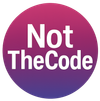New Team, Unknown Codebase: How to Land Without Crashing
Starting on a new team can feel like being dropped into the middle of a movie. Learn why landing well isn't about speed—it's about orientation, understanding people first, and making one small meaningful contribution.

Starting on a new team can feel like being dropped into the middle of a movie—you're not quite sure who the main characters are, what the plot is, or if there's a twist waiting around the corner.
Early in my career, I spent an entire night fixing what I thought was a critical integration bug with our payment system—the API calls seemed to fail randomly, then mysteriously retry with slightly different parameters. I was convinced I'd found a major flaw in our error handling. The next morning, my lead developer gently explained it was actually a carefully crafted workaround for a known issue with the payment provider that the team had spent some time perfecting. What looked like broken code to me was actually necessary problem-solving. The problem wasn't my technical skills—it was my approach.
That humbling moment taught me something that's shaped how I approach new teams ever since: the key to landing well is orientation, not speed. And most importantly, avoiding the urge to get overwhelmed by everything at once.
Map the Human Terrain First
The instinct is to dive straight into the repo, but code rarely explains the context. People do.
Before you touch a single line of code, spend your first few days understanding who does what and how the team actually works. Find the existing groups—who collaborates naturally, who has the historical context, who makes the final calls on different types of decisions.
During these conversations, listen more than you talk. Ask about current challenges, what feels clunky in their daily work, and what they'd change if they had a magic wand. You're not collecting tasks or trying to impress anyone with immediate solutions. You're learning the terrain and showing up as someone who cares about understanding before acting.
When you do speak up, make it count. Share meaningful insights rather than talking for the sake of participating. Your teammates will notice the difference.
Start with What Users See
Next, don't get overwhelmed by the entire system. Instead, use the product like a complete stranger, focusing on the most important use cases. Click through the main workflows. Try to break things. Get confused and ask why certain choices were made.
This isn't about immediate critique—it's about forming an independent view of what the system actually does before you get influenced by internal logic or existing team opinions.
That fresh perspective is precious, and it fades fast once you learn how everything "should" work. Capture those initial observations while you can. Write them down. They might reveal blind spots that the team has developed over time.
Make One Small, Meaningful Move
When you're ready to contribute, resist the urge to tackle something impressive. Instead, pick one small feature and trace it from front to back—from the UI element users click to the database call that retrieves the data.
You're not fixing anything yet. You're listening to the rhythm of the system. What feels consistent across the codebase? What's oddly named? What breaks your expectations?
Then make one small but useful contribution: fix a typo in the docs, update an outdated diagram, add a missing test, or share a simple flowchart that helped you understand something complex.
You're showing that you care, that you're learning, and that you're ready to contribute.
Landing Isn't Settling
Here's what I've learned over the years: the goal isn't to blend in seamlessly. It's to bring value through the unique combination of fresh eyes and your previous experience.
Keep asking for opinions from those who know the business and codebase better than you do. But also trust that outsider perspective you brought with you. Sometimes the best value you can offer is a question no one has asked in a while, or a connection to a pattern you've seen work elsewhere.
The sweet spot is balancing respect for existing knowledge with the courage to point out what might have become invisible to the team.
Your Landing Strategy
So, if you're starting somewhere new this week, remember:
- Don't get overwhelmed by trying to understand everything at once
- Focus on people first, then the user experience
- Make one small meaningful contribution to show you're engaged
- Trust your fresh perspective while respecting existing knowledge
The key question to keep in mind: "What am I seeing that this team might have stopped noticing?"
That question isn't just your entry point—it's how you transform from someone who's just landed into someone who truly belongs.
